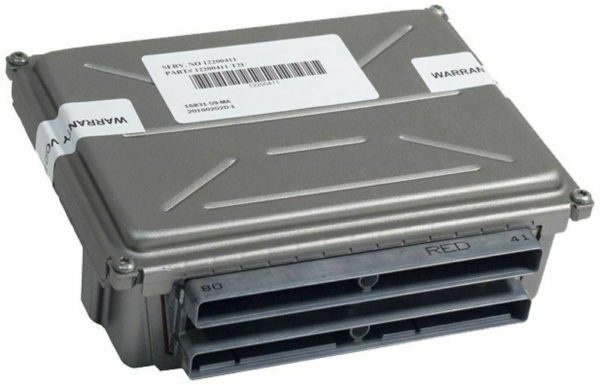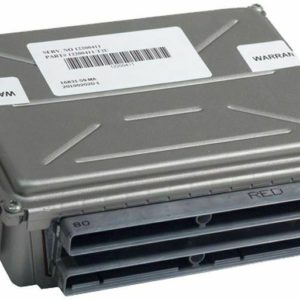Is Your GM Truck or SUV Acting Up? Get Back on the Road with Confidence.
If you’re dealing with a frustrating check engine light, erratic engine performance, harsh shifting, or even a no-start condition on your 2003-2006 Suburban 2500, a failing Powertrain Control Module (PCM) is a very likely culprit. As the brain of your vehicle’s engine and transmission, when the PCM goes bad, it can cause a cascade of problems that are impossible to ignore. I’ve seen it hundreds of times in my shop: a perfectly good engine held hostage by a faulty computer, leaving the owner stranded and facing a costly trip to the dealership.
This isn’t just a replacement part; it’s a complete, ready-to-install solution. We take a quality-tested OEM PCM, part number 12602802, and professionally program it with the latest GM-certified software specifically for your vehicle’s VIN. This ensures all factory parameters for your engine, transmission, and emissions equipment are perfectly matched, restoring the performance and reliability you depend on.
- ✔ VIN-Programmed & Ready to Install: We flash the module to your specific vehicle before shipping. No expensive dealer programming required.
- ✔ Fixes Common Issues: A direct solution for diagnostic trouble codes (DTCs), poor fuel economy, failed emissions tests, and drivability problems.
- ✔ Latest GM Software: Your module arrives with the most current updates, often correcting factory bugs and improving performance.
- ✔ Broad Compatibility: This unit directly replaces multiple service numbers, including 89017750, 12582605, 12589463, and more, for a wide range of GM trucks and SUVs.
Expert Pro Tip from a 20-Year Tech: Before you install your new PCM, take five extra minutes to clean the main engine-to-chassis ground points. On these GM trucks, they are typically located on the engine block or frame rail near the battery. A poor ground connection can cause voltage spikes and communication errors that can damage a new module or mimic the symptoms of a failed one. A simple wire brush cleaning can save you a massive headache.
Solving Your 2003-2006 Suburban 2500 PCM Problems
A faulty 2003-2006 Suburban 2500 PCM can be a diagnostic nightmare for the average DIYer. Symptoms can be intermittent, making them hard to trace. Just last month, a customer brought in his ’05 Silverado 2500 (which uses this exact same PCM) with a random stalling issue that two other shops couldn’t solve. After confirming the fuel and ignition systems were healthy, we connected our diagnostic tools and saw erratic data from the PCM’s 5-volt reference circuit. A new, correctly programmed module fixed it instantly. This is the same reliable fix we’re offering you, without the diagnostic fees and shop labor rates.
Plug-and-Play Installation: No Dealer Visit Required
Installing your new PCM is straightforward and can typically be done in under an hour with basic hand tools. Follow these steps to get your truck running right:
- Safety First: Disconnect the negative terminal from your vehicle’s battery and secure it away from the post.
- Locate the PCM: On most compatible GM trucks and SUVs like the Suburban, Silverado, and Tahoe, the PCM is located in the engine bay on the driver’s side, often under or next to the battery tray.
- Disconnect the Old Module: Carefully lift the locking tabs and unplug the electrical connectors from the old PCM. They are color-coded to prevent mix-ups.
- Swap the Modules: Unbolt the old PCM from its bracket and install the new one in its place.
- Reconnect Everything: Firmly plug the electrical connectors into your new PCM until they click and lock into place. Reconnect your battery terminal.
- Final Step: Your vehicle may need to complete a security relearn procedure, which is a simple process of cycling the key. Instructions are included, and it requires no special tools.
By providing us with your VIN at checkout, you ensure you receive a module that is a perfect match, ready to restore your vehicle’s functionality right out of the box. Stop chasing symptoms and replace the core component with a reliable, professionally programmed PCM.


